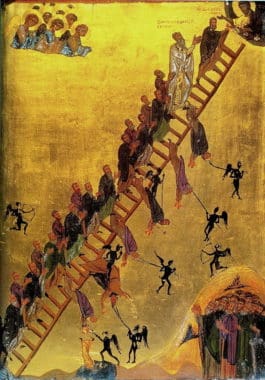…a reader asks: Dear Father John, I know that the Church rejects the doctrine of reincarnation, but sometimes I think that reincarnation seems to be a much  more merciful approach than just having one chance to live well and go to heaven or to live badly and go to hell. I mean, so many human beings have had to live in such miserable conditions throughout the thousands and thousands of years of human existence. Wouldn’t it make sense to give them a second and a third chance to get it right, by reincarnating them in better conditions, more favorable situations? Is it possible that we start as “baby souls” and live different lifetimes and different incarnations in order to enter the Kingdom of Heaven? The more we are willing to endure, suffer and sacrifice, the more Christ-like we become and the better our chances of a blissful eternity. Wouldn’t this explain the “old souls” of the world, victim souls (like Little Audrey Santo) and the heroic saints? It sounds like Heaven would be a WEE bit better populated if the system worked this way.
more merciful approach than just having one chance to live well and go to heaven or to live badly and go to hell. I mean, so many human beings have had to live in such miserable conditions throughout the thousands and thousands of years of human existence. Wouldn’t it make sense to give them a second and a third chance to get it right, by reincarnating them in better conditions, more favorable situations? Is it possible that we start as “baby souls” and live different lifetimes and different incarnations in order to enter the Kingdom of Heaven? The more we are willing to endure, suffer and sacrifice, the more Christ-like we become and the better our chances of a blissful eternity. Wouldn’t this explain the “old souls” of the world, victim souls (like Little Audrey Santo) and the heroic saints? It sounds like Heaven would be a WEE bit better populated if the system worked this way.
In our first post, we looked at the different standards of living that the God and the saints have vis-à-vis the world’s standards. In part II, we pondered the essential core of the meaning of our human life, where we will ultimately find fulfillment and how time is on our side. Today, we will examine why pagan religions often adopted various forms of reincarnational doctrines and how reincarnation subtly denies and obliterates our capacity to love, thus denying our human dignity.
Bringing Light to the Pagans
To my mind, these three principles – the real source of a spiritually fulfilled and meaningful life, the real “place” of our complete fulfillment, and the absolute and unlimited wisdom, power, and goodness of God – put into proper perspective the arguments for reincarnation that you bring forward in your question. Those arguments would carry weight if we didn’t have knowledge of those principles, which is why pagan religions often adopted various forms of reincarnational doctrines. But we do have knowledge of those principles, and so we can help bring light to paganism.
Reincarnation and Human Dignity
But we can also look at the doctrine of reincarnation itself, and see how it subtly denies – obliterates, really – the most precious aspect of being human: Our capacity to love. The capacity to love as God loves requires the possession of a certain spiritual freedom. A robot programmed to be my friend cannot truly love me. A human being who meets me, who hits it off with me, who listens to me and respects me and gets to know me, and then who chooses to share my life as a friend, truly loves me. And that friendship is beautiful and fulfilling and meaningful and gives life the zest it needs to be worth living. God wants our friendship. He loves us, and he hopes we will love him in return. That’s what the story of salvation is all about.
The doctrine of reincarnation eliminates that entire dynamic. Reincarnation posits an unending cycle of do-overs until we “get it right.” There is no possibility, in the end, of rejecting God’s invitation to friendship. And so, there is no real possibility of friendship with God at all. There is no possibility of real love since freedom disappears. Freedom only makes sense if I am free to accept or reject God’s invitation. According to reincarnation, no one is really free to reject God’s invitation; everyone will simply be thrown back into the cruel arena of life until they finally give in and choose what God wants. It’s forced salvation. It’s contrary to God’s love. It’s contrary to human dignity. It’s diabolical. This is why the Bible explicitly rejects it: “Just as it is appointed that human beings die once, and after this the judgment, so also Christ, offered once to take away the sins of many, will appear a second time, not to take away sin but to bring salvation to those who eagerly await him” (Hebrews 9:27-28).
There are other philosophical arguments against reincarnation, but as I said at the beginning, your question contains so many strands and themes that it would take an entire course in philosophy and theology to answer it satisfactorily. I hope that this, at least, has provided some food for thought in the meantime.
If I completely missed your point, please let me know, and I can start over!
+
Art: ‘The Ladder of Divine Ascent” or ”The Ladder of Paradise” icon described by John Climacus. Monastery of St Catherine, Mount Sinai, PD-US-old-100; Wikimedia Commons.


